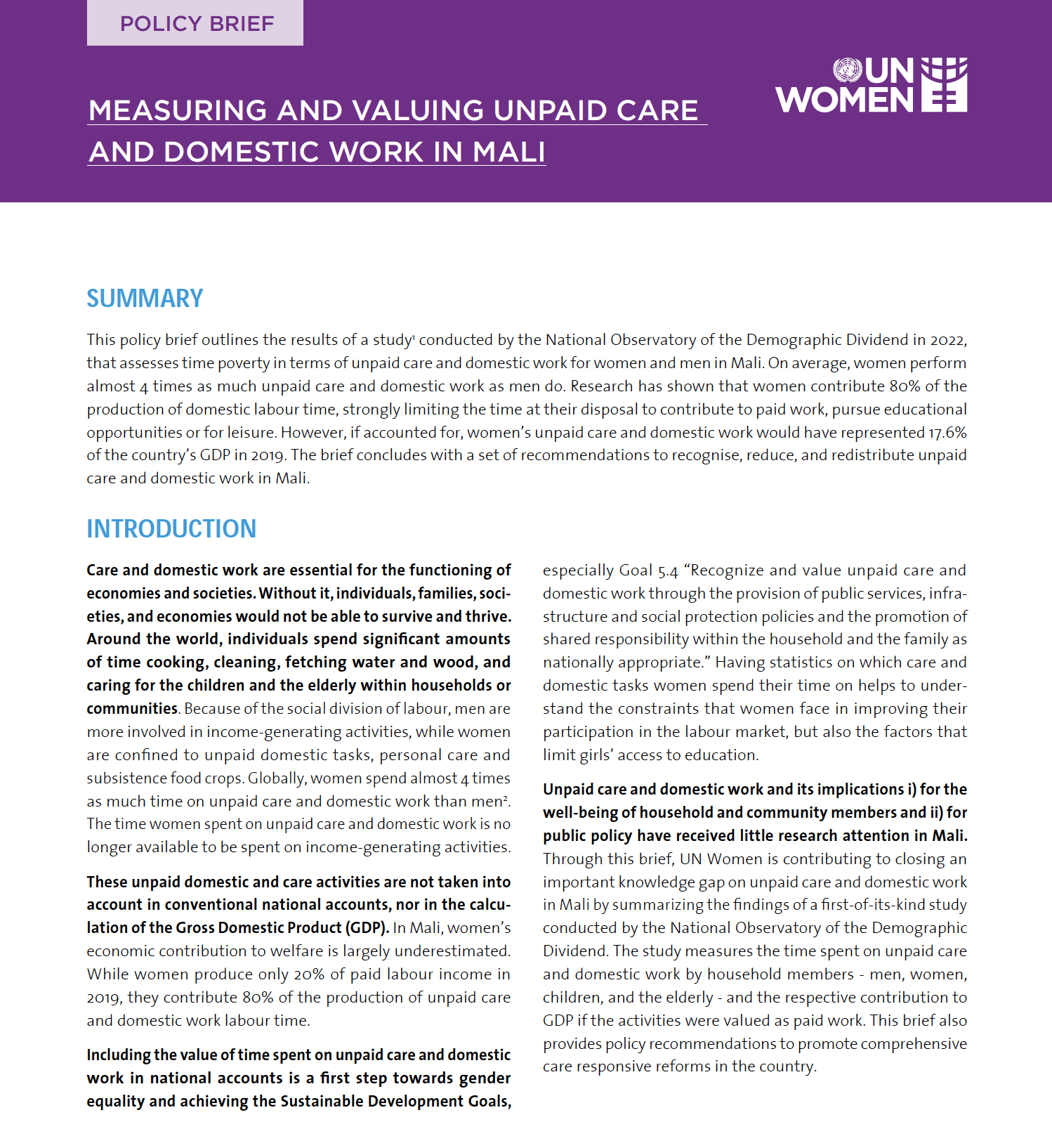
MEASURING AND VALUING UNPAID CARE AND DOMESTIC WORK IN MALI

This policy brief outlines the results of a study conducted by the National Observatory of the Demographic Dividend in 2022, that assesses time poverty in terms of unpaid care and domestic work for women and men in Mali.
The study measures the time spent on unpaid care and domestic work by household members - men, women, children, and the elderly - and the respective contribution to GDP if the activities were valued as paid work. The research showed that, on average, women perform almost 4 times as much unpaid care and domestic work as men do (women produce 21.6 hours of care work time per week compared to 5.7 hours for men). Throughout their lifetime, women can spend up to 24.7 hours per week on these tasks (around the age of 26). Moreover, women contribute 80% of the production of domestic labour time, strongly limiting the time at their disposal to contribute to paid work, pursue educational opportunities or for leisure.
These unpaid domestic and care activities are not taken into account in conventional national accounts, nor in the calculation of the Gross Domestic Product (GDP). However, if accounted for, women’s unpaid care and domestic work would have represented 17.6% of the country’s GDP in 2019.
The brief concludes with a set of recommendations to recognise, reduce, and redistribute unpaid care and domestic work in Mali.